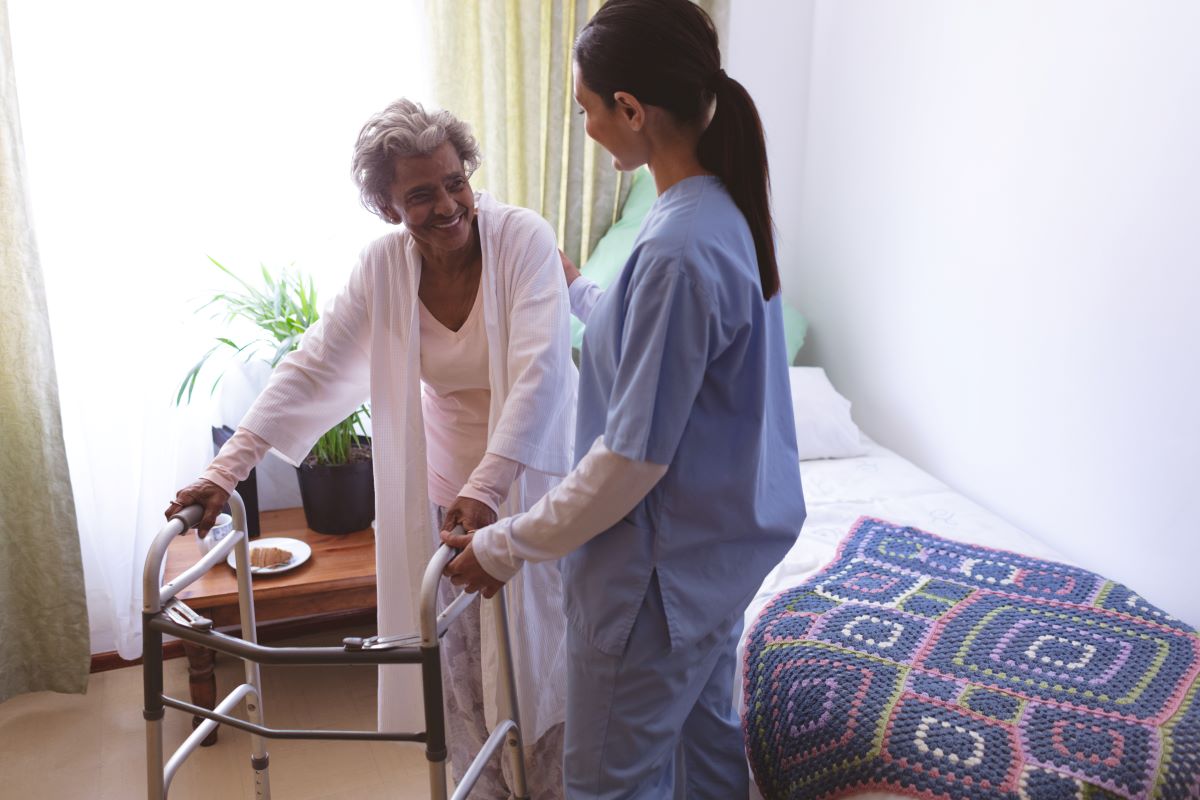What Is a Healthcare Ombudsman? Florida Guide for Facilities

Florida, the retirement capital of the U.S., is home to 21% of the nation’s elderly population. With a steady influx of older adults — and plenty of residential facilities to choose from — how can your long-term care facility stand out as the best place for a retiree to spend their golden years? You can start by collaborating with members of the Florida Long-Term Care Ombudsman Program (LTCOP) to help each individual feel safe and supported.
The Florida LTCOP serves long-term care facility residents through the use of an advocate called a health ombudsman. Florida ombudsman staff and volunteers visit residents to provide support and identify ways to improve their quality of life.
In this article, we outline the duties of ombudsmen, show individuals how to reach out to their state representative, and describe how facilities can work with ombudsmen to bring positive reviews to their organization.
What Is the Florida Ombudsman Program?
The LTCOP of Florida, directed by the Department of Elder Affairs, contains 13 district offices across the state. The program consists of volunteers and district managers who oversee each ombudsman. Florida citizens seeking to improve the quality of life for long-term care residents may volunteer for the role. Ombudsmen advocate for residents in nursing homes, assisted living facilities, hospice centers, and adult family care homes.
The purpose of the program is to protect residents’ rights and ensure they get fair treatment and care. Since the state’s LTCOP is a confidential and unbiased service, an ombudsman must have no affiliation with a facility to be eligible to serve as a patient advocate. This includes being employed by or having a loved one living in their assigned facility.
What Does a Florida State Ombudsman Do?
Any concerned resident, relative, or staff member at a long-term care facility can contact an ombudsman. Florida law authorizes representatives to identify, investigate, and resolve complaints. The services are always free and confidential.
Florida ombudsmen prevent or identify problems proactively by:
- Teaching residents and families about resident rights.
- Informing the public about issues with facilities.
- Facilitating family councils.
- Lobbying for legislation that supports seniors.
They may handle issues in a residential care facility reactively by:
- Surveying facilities and identifying issues.
- Investigating complaints made by or on behalf of patients.
- Resolving disputes between facilities and patients.
- Connecting residents with financial, social, or legal support.
Although an essential aspect of their role is to educate an individual about their rights and resources as they pertain to their situation, an ombudsman does not give official legal advice. However, they are able to connect residents or their families with legal professionals when necessary.
Who Does a Healthcare Ombudsman Work With?
An ombudsman primarily works with residents in long-term care facilities. They may also meet privately with family members or staff to investigate complaints. When working with residents, an ombudsperson identifies issues affecting their quality of life. Some issues could be resolved with a simple change, like moving to a different dining table at mealtime. However, an ombudsman may also identify serious cases of neglect or abuse, which they’re trained and certified to handle from a neutral standpoint.
Outside of the care setting, an ombudsman collaborates with other volunteers, program managers, and council members to keep the programs operating smoothly. They’re also spokespeople in the community, providing public education about residents’ rights in long-term care facilities.
How Can I Contact a State Ombudsman?
When working with regulatory agencies, transparency can help everyone feel part of the same team. Employees, patients, and their family members should be encouraged to reach out to their state ombudsman with any questions or concerns. The following ombudsman office phone number, email, mailing address, and website information should be publicly posted for easy reference:
|
|
|
|---|---|
| State Ombudsman Phone Number: | (888) 831-0404 |
| State Ombudsman Email: | LTCOPInformer@elderaffairs.org |
| State Ombudsman Mailing Address: | Long-Term Care Ombudsman Program
4040 Esplanade Way, Suite 380 Tallahassee, FL 32399-7000 |
| State Ombudsman Website: | https://ombudsman.elderaffairs.org/ |
Tips for Facilities Working With a State Ombudsman
It’s important for facilities leaders to remember that they have an ally in an ombudsman. Florida volunteers in the program are there to make the experience better for residents and improve resource allocation within a facility. Their services can lighten the load of direct care staff, who may already be experiencing heavy workloads and caregiver burnout.
An ombudsman may also have the resources to resolve a resident’s complaint before they file a formal grievance. An expression of dissatisfaction is not only damaging to a healthcare facility’s reputation, but it can lead to CMS fines — a costly and preventable expense for facilities. According to one report, the Florida Ombudsman Program saved the state $1,341,387 in one year alone.
Be aware that an ombudsman investigation could uncover issues in a facility that lead to legal action. Part of an ombudsman’s role is to perform annual assessments at residential care facilities. While they’re not the same as state accreditation surveys, facilities should be prepared for these informal visits in case an ombudsman identifies a safety issue. Facility leaders can prepare for a visit by:
- Ensuring safety standards are up-to-date in accordance with CMS laws and regulations.
- Reporting any instances of elder abuse, neglect, or exploitation to the Florida Abuse Hotline, an affiliate of the Department of Elder Affairs.
- Collaborating with the ombudsman and being compliant with their investigation requests.
Find More Ways to Support Long-Term Care Residents
No matter how much your staff makes residents feel at home, many of them don’t have the ability to speak up for themselves — which is why it’s important to welcome the support of an ombudsman. Florida volunteers are committed to improving the experience for everyone in your facility, and IntelyCare is too. Read about other ways to improve the resident experience by signing up for our free newsletter.

